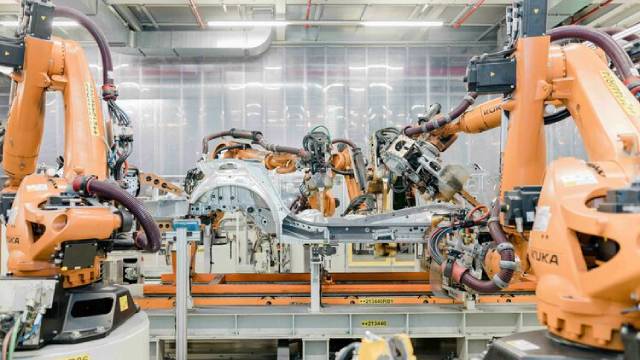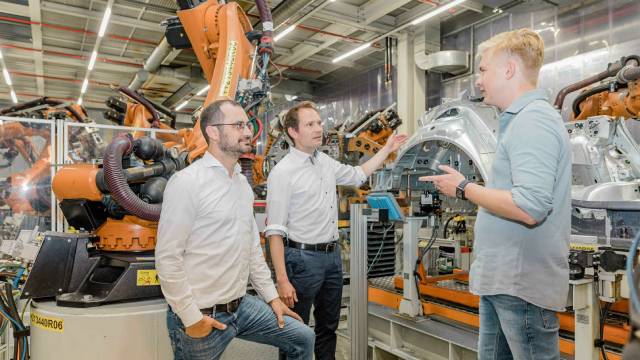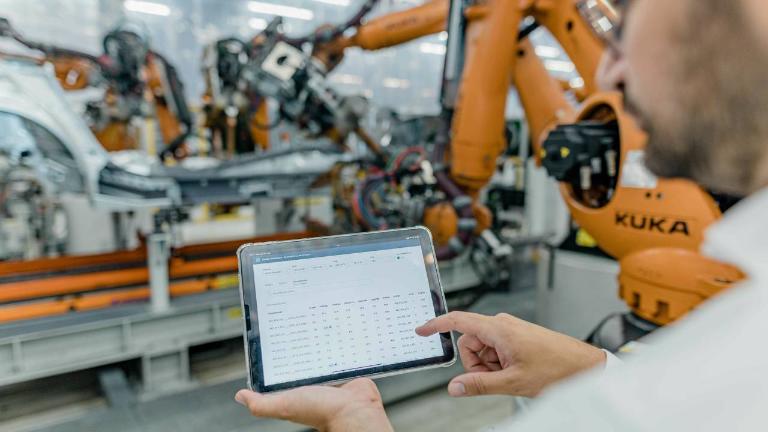Audi rolls out artificial intelligence for quality control in production
After a successful pilot project, artificial intelligence is entering Audi's production processes for quality control in car body construction; it will shortly be implemented at other three Volkswagen Group locations.
Digitization is becoming more and more prominent in Audi's production activities, and the implementation of artificial intelligence in various production processes is part of this innovation.
The most recent case is that of a successful pilot project in which AI was used for quality control of spot welds in car body construction. Given the excellent results, the process was implemented in series production after being developed and tested at the Neckarsulm plant. And by the end of 2023, the new technical infrastructure for using AI will be installed in three other plants of the Volkswagen Group.

Even more efficient quality checks
Using artificial intelligence, about 1.5 million spot welds on 300 vehicles each shift are analyzed at Audi Neckarsulm plant. By comparison, until recently, technicians used ultrasound to manually monitor the quality of resistance spot welding processes by performing random analyses. This way around 5,000 spot welds per vehicle were checked, while with artificial intelligence technicians can focus on possible anomalies. This instead makes quality control more efficient and targeted.
From Audi to the entire Volkswagen Group
The use of this innovative technology will be extended to other Volkswagen Group plants: the technical infrastructure for using AI is currently being installed at Audi Brussels; it will then be the turn of the Volkswagen plant in Emden and the Audi headquarters in Ingolstadt by the end of the year.
At the current stage of work at the three sites, technical specialists are identifying differences in weld settings to retrain the AI model accordingly.
Future production
The data generated using artificial intelligence could also be used to optimize other processes, such as predictive maintenance for vehicles already on the road.
"Digitized assembly lines are at the heart of Audi's vision for the production of the future: making production increasingly efficient at Audi locations worldwide is part of the 360factory strategy, and the use of artificial intelligence in series production promises huge potential in this regard," explains Gerd Walker, Audi Board Member for Production and Logistics.

From theory to practice
To make the process audit- and certification-proof, development at the Neckarsulm plant was carried out in close coordination with the German Association for Quality (DGQ), the Fraunhofer Institute for Industrial Engineering (IAO), and the Fraunhofer Institute for Manufacturing Engineering and Automation (IPA). An approach that was made necessary by the fact that there are currently no standards or certifications issued by an independent body for artificial intelligence applications.
"This means that, for example in manufacturing, it is possible to conclusively demonstrate how the result of a test based on artificial intelligence comes about" explained WPS-Analytics project managers Mathias Mayer and Andreas Rieker.
Automotive Initiative 2025
Together with the Fraunhofer Institutes Audi has also developed a guide for production with artificial intelligence. In addition, the "WPS-Analytics" project also serves as a use case for the Automotive Initiative 2025 (AI25) launched by Audi with the goal of establishing a competence network for digital factory transformation and innovation of production facilities. Audi wants to make production and logistics more flexible and efficient through digitization, which is why in Neckarsulm, with the help of scientific and IT partners, it is testing digital solutions to be implemented in series production.
Source: AUDI AG
VGI | Responsible OU: VP | Creation date: article date | Class 9.1
